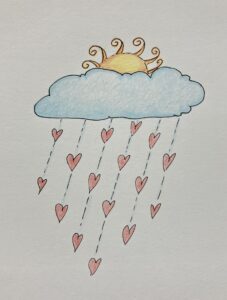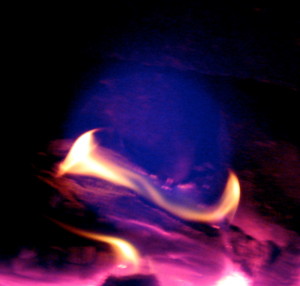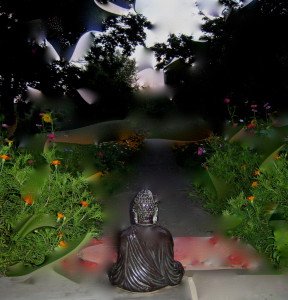
-Artwork © 2024 Jan Ketchel
The subconscious mind is the creative powerhouse at the core of our soul. It links with the limbic system in the brain, which houses our instinctual and emotional primal self. The subconscious is vastly influenced by the survival suggestions of this primal being, with self-preservation as its number one priority.
The ego is the conscious thinking part of the soul, that corresponds with the neocortex in the brain while we exist in human form. This analytical center provides us with the ability to exercise free will, even overriding the hardwired genetic programs of the limbic system. We are free, for example, to make decisions and take actions that the limbic system would have us avoid in order to remain safe.
The subconscious is also powerfully affected by the thinking suggestions of the ego, and, if impressed enough, may manifest them, despite the more conservative suggestions of the limbic system that run counter to the ego’s wishes. Emotion is the significant variable in the subconscious mind’s choice; what we put a lot of emotion into usually wins out.
The highly emotionally charged fight/flight/freeze reaction of the limbic system is its central program for self-preservation. When the subconscious mind manifests this natural reaction in the nervous system, the ego’s neocortex center is compromised. We simply can’t think rationally, as the subconscious sends all available energy to the body to fund survival.
The result of this fear-based internal environment is the flooding of the body with adrenaline and cortisol, which generates a hyper-alert physical and emotional state to fend off real or imagined attack. Without the ego’s ability to contribute alternative perspectives and suggestions that could release the perception of danger, the body remains captive to this ever-present threatened state.
Emotions of fear, anger and hate tend to be reinforced by triggered memories of prior threats or imagined potential threats, which the brain treats as real, intensifying the emotional panic. Fearful thoughts generate negative emotions, which trigger more fearful thoughts in an ever-escalating loop of deepening negativity.
In this low frequency state of negativity, the subconscious manifests a state of exhaustion and hopelessness, matching the suggestions of the activated limbic system. In order to shift from this disheartened state, the ego is tasked with exercising its will over the limbic system’s hardwired programs, introducing new suggestions to the subconscious mind.
The decision to breathe for several minutes to an 8-8-8 count and then a 8-16-8 count will begin to shift brainwaves away from an anxious beta mental state into a calmer alpha/theta state. From this calmer place we can state our desired intent, perhaps for a more peaceful inner, as well as outer, world.
This is the opportunity to raise the emotional vibration to the heights of gratitude, an extremely attractive vibe to the subconscious mind. Begin with deep appreciation first for the divine intelligence of the subconscious mind, which places itself at our creative disposal. Send love and gratitude toward every other part of All-That-Is because, regardless of circumstance, we are all in this together.
With deep gratitude and awe, imagine the manifestation of that which you seek as fully formed. This accomplished deed in the heart and mind causes the brain to form the neural circuits and release the appropriate hormones to match the body with the mind’s imagination. The subconscious further supports this transformation by attracting outer physical reality to it that matches its inner high vibration of loving gratitude.
In this time of pervasive outer negativity, no one can be stopped from an inner practice of deep gratitude that radiates and attracts a reality that matches its love and appreciation for all. Be the gratitude rainmaker whose solo practice releases a thunderstorm of love upon the world.
Gratitude Now!
Chuck






